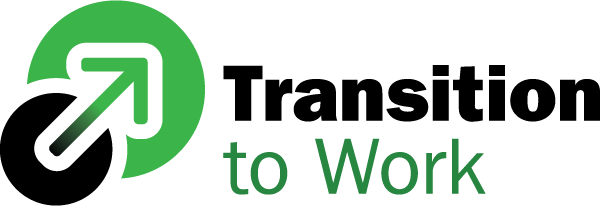Students with Disabilities Resources
As graduates with disabilities increasingly join the workforce, numerous resources, both online and in-person, are available for your assistance.
Remember the Career & Student Success Advisors are here to help - you can set up a meeting to explore career options, get help with job interview preparation, or just for general advice as you begin your job search.
Stay up to date on our Transition to Work for Persons with Disabilities events, by checking out our event site. These events are focused on helping students and recent grads with disabilities build career-ready skills for meaningful employment.
- The Disability Impact on Career & Employment (DICE) assessment can help students with disabilities:
- Identify the limitations, strengths and skills they bring to the workplace
- Discover key components of a compatible career
- Determine workplace accommodations that will work best, and how to speak to an employer about them
- Job Search Advising
- Gain Experience - CareerConnect Job Portal
- Resume and Cover Letter Writing
- Interview Preparation
- Student Wellness & Accessibility Centre
- Disability Related Student Groups on Campus
For more information about how DICE can help, please contact Elaine, Student Success Advisor, Academic & Career Services at Elaine.Belanger-Porter@Humber.ca.
Students interested in expanding their job search resources, learning more about their skills, educational pathways, job search techniques, networking and interview tips, may book a one-on-one appointment with a program specific Career & Student Success Advisor.
Students who are unable to attend an in-person appointment can request to complete their session via telephone or via email.
Find out more about "What is a Career & Student Success Advisor?"
Please visit Humber's CareerConnect Job Portal where you can check out current job postings - full-time, part-time, internships, summer and volunteer opportunities.
When applying for a job, most employers will ask you to submit a resume and cover letter. Advising & Career Services has Career Support Peers (CSPs) who can help you. You can book an appointment to meet in-person or virtual with a CSP, who will help you to create or improve your resume and cover letter.
Interviews can be daunting, and it's normal to be nervous before an interview. We recommend you meet with a Career Support Peer for a simulated job interview preparation session.
It's also important that you create strategies to help you cope with nervousness, like eating well and getting proper rest before an interview, or using meditation and deep breaths to slow your heart beat. For more detailed tips and resources, read through our "Job Interview Tips".
If you require accommodations for the interview, be sure to make the request when you are invited to the interview. To learn more please refer to "Disclosing Disabilities Resources".
Humber College offers a range of services to support student well-being and accessibility needs. This includes mental health resources, accessibility services for students with disabilities, and wellness programs to promote overall health. They also provide counseling, workshops, and various support groups to help students thrive academically and personally.
The ASD Social Group is for students who identify as living with an Autism Spectrum Disorder (ASD). The group provides an opportunity to meet other students, make friends, play games, and discuss topics for academic and personal success.
The following is a list of Toronto-area agencies and resources dedicated to supporting individuals with disabilities in their job search. These organizations offer specific programs tailored to the needs of individuals with disabilities, while others provide general job search assistance.
- AMI TV Paid Internships for Students with Disabilities
- CIBC(Job Portal)
- The Federal Student Work Experience Program (FSWEP)
- Job Seekers Guide for Students and Graduates with Disabilities-The Learning Porta
- Lime Connect
- Ongoing Student Recruitment Inventory
Exciting opportunities await students who have a passion to make a difference every day. AMI will provide a challenging and rewarding experience in the Broadcast industry in a wide variety of technical, business and creative roles.
CIBC offers a dynamic start to your career with a range of opportunities for students and graduates, allowing you to learn, grow, and discover diverse career paths alongside industry leaders.
The FSWEP provides full-time and part-time work opportunities across Canada in various fields, enabling students at all academic levels to gain valuable experience in the federal public service.
The Job Seekers Guide for Students and Graduates with Disabilities on The Learning Portal is a comprehensive resource. It's designed to support students and graduates with disabilities in their job search journey. The guide provides practical strategies to navigate barriers to employment and offers advice on how to successfully determine a career path. It serves as a valuable tool for disabled students, helping them to overcome challenges and thrive in their chosen careers.
Lime Connect offers full-time employment, co-op employment, internships and scholarship opportunities.
This extensive inventory is open year-round, offering over 200 departments and agencies a variety of work opportunities for students, including in fields like sciences, trades, administration, IT, and finance.
How to know if an employer is disability friendly
- Ask anyone you know who works there. They may be aware of an employee who was accommodated. Is it a high pressure workplace (eg. Do people eat lunch at their desks? Do staff take breaks?) Are people collegial, friendly?
- Go to the employer's website. If the website is accessible, it may mean that the company is disability-friendly, or at least have implemented some accommodations.
- Check the company's policies - do they give sick leave? Is the work flexible? Does the company promote a work/life balance? Do they have a policy or statement about mental health (awareness/promotion)? Do they have a policy or statement on physical health (awareness/promotion)?
- If possible, check out the physical space (they may have photos on their website, you could ask someone who works there, or just drop by yourself). Look to see if the space is wheelchair accessible; check out the washrooms; and check if signage is large and/or in braille. Although you may not need these accommodations, it's an indication of the willingness of the employer to implement them.
Career Conversations for Learners with Disabilities - GUIDE
This guide supports students and alumni with disabilities in their career journey, offering career-related resources, and advice on rights, disclosure, and workplace accommodations.
We will be adding new resources and content for each, in addition to those shared already.
The Transition to Work Program aims to enhance successful career outcomes and strategies for persons with disabilities through hosting workshops and events, and connecting learners with college support staff, employers, alumni and community agencies.
Learners who require placement or clinical accommodations related to a disability for their Work-Integrated Learning program component are encouraged to meet with their ALS Advisor/Specialist to discuss the accommodation process during a 50-minute appointment. If you are a Humber learner already registered with ALS, please visit the portal. If you are a UGH learner or a Humber learner who has never worked with us, please email accessible-learning@humber.ca.


Elaine Belanger-Porter
Student Success Advisor
Career Assessments (DICE / JDAPT) & Advice
Students with Disabilities
437-656-1398
elaine.belanger-porter@humber.ca
